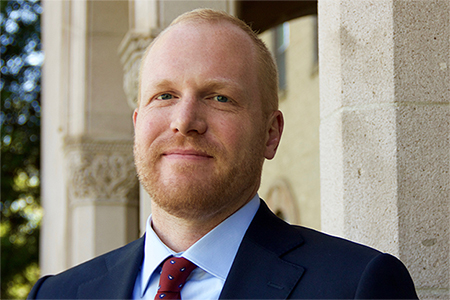Take me to “A Catholic’s Guide to Self-Help”
By Matthew McCall, Psy.D.
During the last five years or so, a practice called mindfulness has become incredibly popular across much of the Western world. You’ve probably heard of mindfulness, and perhaps have had a friend, family member, or health care professional recommend it.
As a faithful Catholic, you may wonder if mindfulness is simply a beneficial exercise for the brain or a more worrisome and forbidden entryway into a Buddhist form of prayer.
In its essence, mindfulness is the practice of paying attention to the present moment, with an attitude of acceptance and curiosity. For many people who practice mindfulness, this means a formal meditation time where one pays attention to breathing. However, mindfulness can be practiced while walking by simply paying attention to what it feels like to be walking.
Others use mindfulness to help calm down during incidents like a panic attack. They may simply pay attention to the physical sensations of anxiety and the panicked thoughts they are experiencing. In this case, mindfulness can help ground these individuals, help re-establish calm, provide a better perspective, and help counteract obsessive, anxious thinking.
Accept the True, Reject the False
Since mindfulness is one of the steps of the Noble Eightfold Path taught by the Buddha and central to many forms of Buddhist meditation, it can be rightfully concerning to faithful Catholics. Buddhism teaches things that are contrary to the Catholic faith. For example, Buddhists believe that suffering is the greatest problem of life, that the self is an illusion, and that individuals should seek nirvana through a deep realization that the self does not exist.
Practicing mindfulness as a means toward Buddhist goals is counterproductive for a Catholic. Instead, Christ calls us to take up our crosses as He did, embracing suffering and appreciating its meaning. We are also to hope for an eternal union with Him with our not only “real” but also eternal selves.
However, it’s important to realize that not everything Buddhism teaches is false, bad or morally wrong. Much of it is completely unobjectionable. For example, right speech and right action are also steps of the Noble Eightfold Path. Many Catholics would agree that ordering their speech and their behavior is a virtuous pursuit.
Use Mindfulness as a Tool to Get to Know Yourself Better
We are often told to love our neighbors as ourselves. To love our neighbor, then, implies that we love ourselves. To love ourselves, we must know ourselves first. Mindfulness can serve as a tool to help us do just that.
Going back to the basic definition of mindfulness as a practice of paying attention to the present moment with an attitude of acceptance and curiosity can be helpful. Learning to pay attention to the sensations in our bodies or the sounds around us is critical to good mental health. Many people have never learned how to do this.
By paying attention to the physical sensations in your body, you can better identify what you are feeling and then learn to grow to tolerate difficult emotions. Paying attention with an accepting attitude can help you regulate anxiety, grow in self-understanding, and undercut rumination.
Paying attention in this way does not seek to attain nirvana or anything like it. It’s just a helpful way of getting to know yourself better. Buddhism can’t have a monopoly on paying attention, just like it can’t have a monopoly on breathing.
Keep First Things First
Remember that the ordinary means of sanctification for Catholics are prayer and the sacraments. These must remain first in a faithful Catholic’s life, and a practice of mindfulness should not replace them. Mindfulness is not prayer.
However, most faithful Catholics can incorporate mindfulness into their lives as a helpful tool to enhance their understanding of self. As long as mindfulness is not performed to try to attain some form of nirvana or to replace a real and personal relationship with God, there is no reason to avoid paying attention.
About Matthew McCall, Psy.D
 Matthew is a licensed psychologist with a Doctorate in Clinical Psychology from the Institute for the Psychological Sciences (now Divine Mercy University). He takes the art and science of psychotherapy very seriously, and works continuously to improve in this most complex but fulfilling craft. Matthew tends to work within the framework of depth psychology, paying careful attention to what goes on underneath the surface of each client, and developing a nuanced understanding of what makes each client tick. He loves to get to the heart of the matter, and see the uniqueness of each person he treats. When both Matthew and the client are clear about the nature of the emotional problem, he views it as a privilege to help the client experience deep feelings, gain insight into the causes of his or her unnecessary suffering, and learn to live with freedom and passion. Matthew understands how dark and painful a life affected by mental illness can be, but also believes that emotional healing is possible. Because of this deep belief in the possibility of personal transformation, Matthew invites his clients to dare to hope, and dare to face reality head on. Matthew looks forward to meeting you, and working together to help you overcome old patterns and experience a new kind of freedom and peace. For more information about his private practice, please visit here.
Matthew is a licensed psychologist with a Doctorate in Clinical Psychology from the Institute for the Psychological Sciences (now Divine Mercy University). He takes the art and science of psychotherapy very seriously, and works continuously to improve in this most complex but fulfilling craft. Matthew tends to work within the framework of depth psychology, paying careful attention to what goes on underneath the surface of each client, and developing a nuanced understanding of what makes each client tick. He loves to get to the heart of the matter, and see the uniqueness of each person he treats. When both Matthew and the client are clear about the nature of the emotional problem, he views it as a privilege to help the client experience deep feelings, gain insight into the causes of his or her unnecessary suffering, and learn to live with freedom and passion. Matthew understands how dark and painful a life affected by mental illness can be, but also believes that emotional healing is possible. Because of this deep belief in the possibility of personal transformation, Matthew invites his clients to dare to hope, and dare to face reality head on. Matthew looks forward to meeting you, and working together to help you overcome old patterns and experience a new kind of freedom and peace. For more information about his private practice, please visit here.
